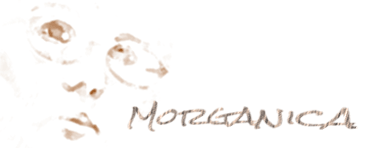“Maybe we’re just too old to spark,” my sister laughed. We were standing in a strange bathroom with the lights off, trying to get wintergreen Lifesavers to light up as we crunched them with our teeth. Nothing was happening.
Correction: Something WAS happening, something that had nothing whatsoever to do with blue-white sparks shooting out of my mouth. We were just hanging out, doing silly things. Having fun.
That’s maybe something I should remember to do more often. Maybe we all should.
Suzi’s family goes to the coast* at the end of every summer, to dig clams, ride horses on the beach, kick sand into the surf, and eat halibut at Mo’s. They rent a cottage in one of the little coastal villages, finishing off their summer before gearing up for school.
This year, their cottage rental had room for seven, so they invited Mom and me along. The two of us left Portland early so we could visit the little aquarium in Newport (Mom’s got a thing about jellyfish and sharks), and then make our way to the cottage in Lincoln City.
 It was 91 degrees in Newport (an anomaly), and they don’t believe in air conditioning–why should they, when it rarely gets above 75 on a HOT day?–and so we gently sweated as we watched white jellyfish float dreamily through the water. An older gentleman drew alongside us.
It was 91 degrees in Newport (an anomaly), and they don’t believe in air conditioning–why should they, when it rarely gets above 75 on a HOT day?–and so we gently sweated as we watched white jellyfish float dreamily through the water. An older gentleman drew alongside us.
“Like the jellies, do you?” he beamed, “Those are moon jellies, they won’t hurt you.”
Especially not behind that thick glass, I thought dryly, but I nodded politely.
“The jellies, they can’t swim, only go up and down,” he pointed out, “They’re just drifting wherever the current takes them. Everybody eats them, they don’t live long in the sea, but they don’t care, they just go with the flow.”
“It’s a much simpler life,” he mused, “We could take a lesson.”
He’s probably right. I don’t take things simply; I complicate them with deadlines and strategies and moral questions. The jellies drift wherever they go; I’m midstream with a backhoe, diverting the current.
A vet–the vet who diagnosed Chinni’s terminal cancer–once told me that animals have it much better than people. “They don’t anticipate,” he’d said, trying to comfort, “They don’t think about whether or not the treatment will work, or what will happen after they die. They just take each day as it comes.”
Do I ever do that? Probably not. I can’t imagine going gentle into any night, good or bad. I want to be the old lady that never stops. The craggy old bitch that makes the trains run on time.
I would make a lousy jellyfish.
 Suzi’s kids apparently didn’t believe in the electric Lifesavers story, so she’d asked Mom to bring a big bag of wintergreen Lifesavers to the cottage. The plan was to spend Saturday night burning marshmallows for s’mores, tasting chocolates (more about that later), playing card games…and making Lifesavers spark.
Suzi’s kids apparently didn’t believe in the electric Lifesavers story, so she’d asked Mom to bring a big bag of wintergreen Lifesavers to the cottage. The plan was to spend Saturday night burning marshmallows for s’mores, tasting chocolates (more about that later), playing card games…and making Lifesavers spark.
Trouble was, the Lifesavers were hard as a rock, and the only thing getting crunched was our teeth. The last time my teeth had a standoff with hard snack food I wound up in pain, minus a tooth and a not-inconsiderable sum. I needed the rest of my teeth intact, thank you.
We exited the bathroom and headed for the back patio, where Suzi’s daughters were braving the hot tub. It was a balmy 51 degrees outside, goosebump weather, but the cottage had a hottub and by jingo, the girls were going to hottub.
“I want you girls to see this,” Suzi said, holding out one of the stubborn candy rings. “Remember how I told you that wintergreen Lifesavers make sparks? Well, crunch these in YOUR teeth and you’ll see!”
“Mom,” her daughter asked reasonably, “Why would I want to risk my teeth on a Lifesaver, just to see a spark? I’ve seen sparks. Did you really spend your childhood doing this?”
So Suzi finally put a lifesaver on the concrete patio, picked up a knife–we couldn’t find a hammer–and smashed the handle down, crunching the candy to bits.
No spark. Apparently wintergreen Lifesavers are now spark-less. Still, I slipped a stray into my pocket when I went upstairs to bed.
Later, alone in the dark, I crunched it between my teeth. And giggled softly to myself.
*Note that I said “goes to the coast,” not “goes to the beach.” Apparently if you go to the beach in the northwestern US, you could be going to the river’s edge. So around here, if you are visiting the Pacific Ocean, you “go to the coast.”


Comments welcome! (thanks)